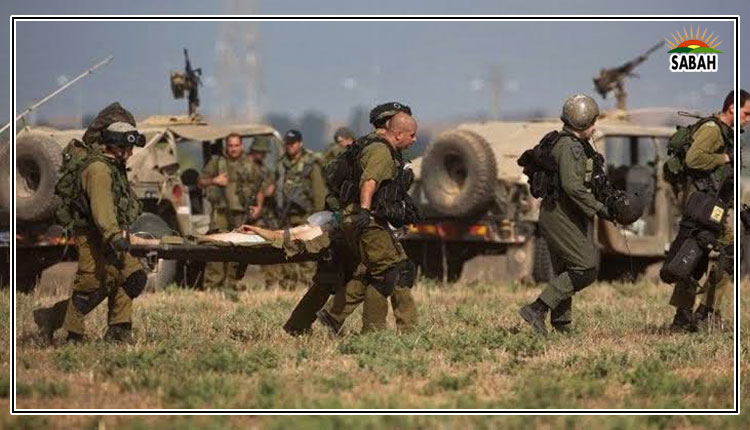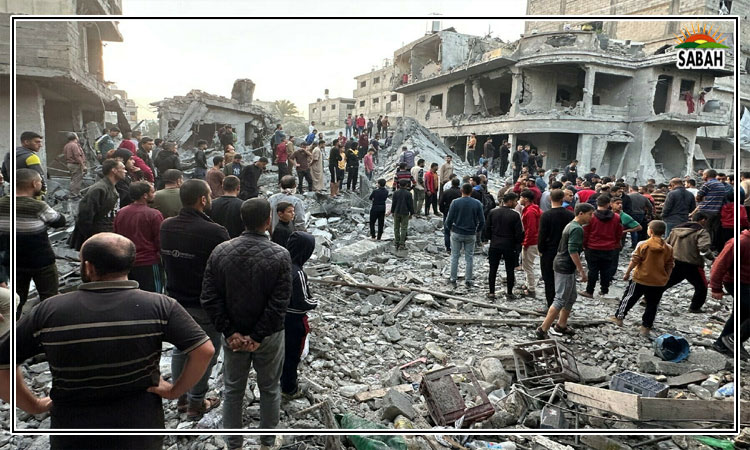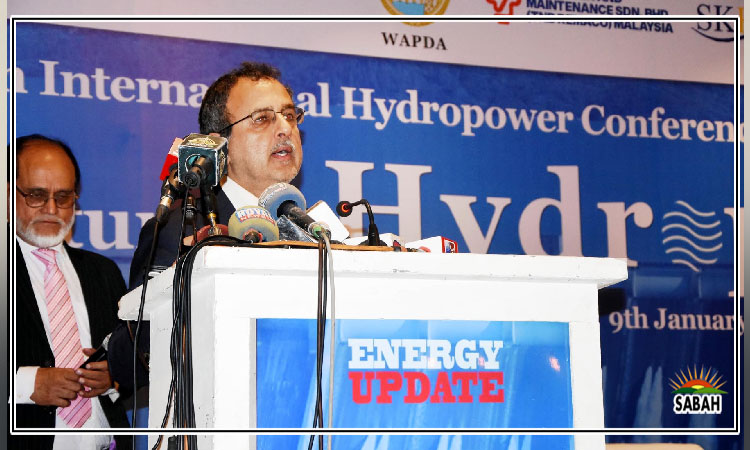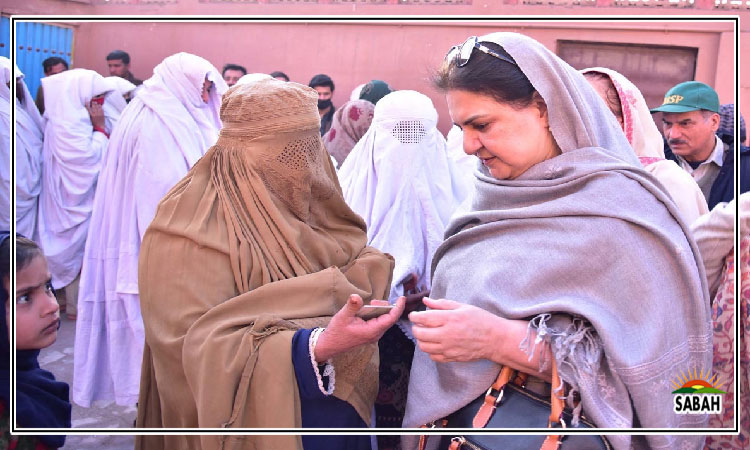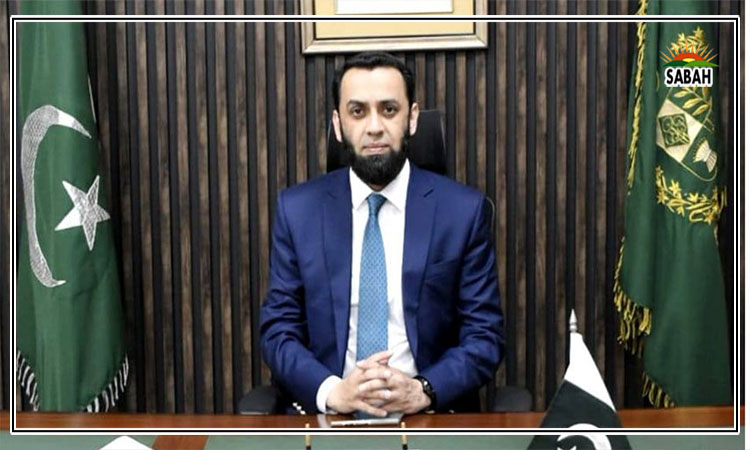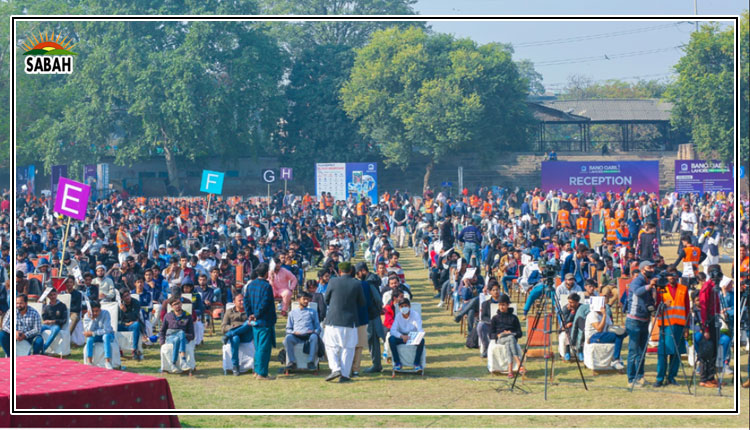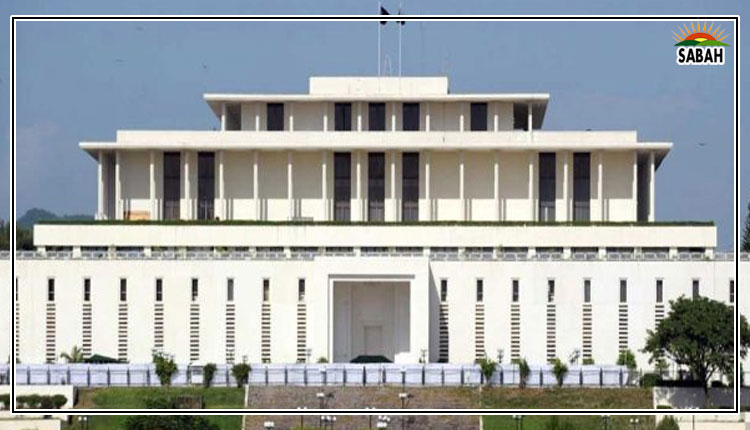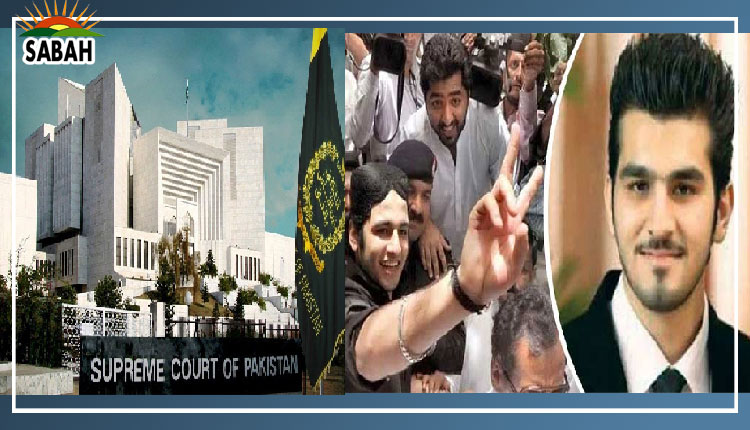SC bench headed by Justice Ijazul Ahsan acquits Shahrukh Jatoi, others in 2012 Shahzeb Khan murder case
ISLAMABAD, Oct 18 (SABAH): The Supreme Court of Pakistan on Tuesday acquitted Shahrukh Jatoi as well as his accomplices in the Shahzeb Khan murder case.
A three-judge bench, headed by Justice Ijazul Ahsan, and comprising Justice Munib Akhtar and Justice Sayyed Mazahar Ali Akbar Naqvi, heard the case.
An Anti-Terrorism Court (ATC) had awarded the death penalty to Jatoi and his accomplice Siraj Ali Talpur for Shahzeb’s murder in 2012 following a petty dispute. Siraj’s younger brother, Sajjad Ali Talpur, and domestic helper Ghulam Murtaza Lashari had been handed life sentences.
A couple of months after the sentence was passed, however, Shahzeb’s parents had issued a formal pardon for the convicts, approved by the Sindh High Court (SHC).
Despite the pardon, however, the death penalty had been upheld because of the addition of terrorism charges to the case — up until the SHC dropped the charges and ordered a retrial in the case.
The SHC, while hearing appeals against the conviction, had later commuted the death sentences into life imprisonment. Subsequently, all four accused had approached the Supreme Court.
During the hearing on Tuesday, their lawyer, Sardar Muhammad Latif Khan Khosa advocate, noted that the formal pardon had already been issued. “The accused had no intention of spreading terror,” he added, “the murder event was presented as a case of terrorism”.
Subsequently, the court acquitted all four people. A detailed order is awaited.
Shahzeb Khan, the 20-year-old son of former deputy superintendent of police Aurangzeb Khan, was gunned down on Saba Avenue in Karachi’s Defence Housing Authority (DHA) on the night of December 24, 2012.
Shahzeb had returned home from a wedding with his family when an employee of the accused verbally harassed his sister. He confronted the accused and demanded an apology.
The accused, however, were remorseless and refused to apologise for the behaviour of their employee. The issue was apparently resolved when Shahzeb’s father intervened and tried to pacify both his son and the other party.
Soon after, Shahzeb left his house in his car and was on Saba Avenue when the accused chased him down and shot him dead in public.
The murder sparked outrage across the country leading to then chief justice, Iftikhar Muhammad Chaudhry, taking suo motu notice of the incident.
In June 2013, an anti-terrorism court (ATC) awarded the death penalty to Shahrukh and Siraj Talpur, while Sajjad Talpur and Ghulam Murtaza Lashari were given life imprisonment.
Shahrukh was handed down an additional three years in prison for illegal possession of a weapon. The ATC also directed the convicts to pay a Rs500,000 fine each.
As he had walked out of the court after the verdict was announced, Shahrukh Jatoi had posed with victory signs for the countless cameras trained on him. This behaviour again drew condemnations from civil society.
A few months after the verdict, however, the victim’s father granted a pardon to the accused. Reportedly, the pardon was granted under duress. The convicts then again approached the Sindh High Court (SHC) for a review of the verdict.
In November 2017, the SHC decided on the criminal review petition, set aside the capital punishment awarded to the two accused and ordered a retrial.
The defence counsel had argued for the terrorism charges to be dropped considering the prime suspect was a juvenile at the time of the offence.
Shahrukh’s age had been contentious from the early stages of the trial when a medical report had determined his age to be between 17 and 18 years at the time of the incident.
The report was rejected by the ATC and a seven-member medical board had subsequently determined that Shahrukh was no less than 19 years old.
The SHC, however, granted the defence’s plea for the removal of sections of the anti-terror law.
In December 2017, the sessions court released all the accused on bail. The move again sparked anger among civil society and several activists approached the apex court against the SHC’s verdict.
The activists included Jibran Nasir, Jamshed Raza Mahmood, Afiya Shehrbano Zia, Naeem Sadiq, Nazim Fida Hussain Haji, Zulfiqar Shah, Aquila Ismail, Fahim Zaman Khan, and Naziha Syed Ali, who filed a criminal petition in the apex court, challenging the SHC order.
The petition, filed through renowned lawyer Faisal Siddiqui, asserted that residents of the same city where Shahzeb was murdered, had filed a criminal petition for leave-to-appeal, challenging the SHC order for not applying ATA provisions and setting aside the conviction recorded by the trial court.
The petition had said the incident of gruesome murder had created fear and insecurity among the general public. The civil society members had claimed that the fear and panic among the residents of the area offered enough grounds for them to file the case, even though they did not directly know the deceased.
They said they were personally terrorised and intimidated by the murder.
In February 2018, the SC turned the petitions by civil society into a suo motu notice and set aside the 2017 SHC decision, ordering a retrial.
The apex court also restored terrorism charges framed against the accused – Shahrukh, Siraj and Sajjad – which had been removed by the SHC. The SC bench ruled that bails granted to the accused by the sessions court were against the law.
Shortly after the verdict was announced, the accused were taken into custody in Islamabad and handed over to the Sindh Police. Their names were also placed on the Exit Control List.
Over the course of one year, the SHC heard arguments from both parties in favour and against the convictions and commuted in 2019 the capital punishment awarded to two prime accused in the Shahzeb Khan murder case – Shahrukh Jatoi and Siraj Talpur – into life imprisonment.
The high court also upheld the life imprisonment sentence awarded to two other accused, Sajjad and Ghulam. The decision was announced by Justice Muhammad Ali Mazhar and Justice Nazar Akbar on the review of petitions filed by the accused against their conviction.
The accused had then filed appeals in the Supreme Court against the life imprisonment sentence and were acquitted on Tuesday.


